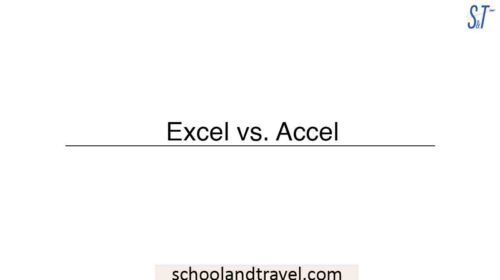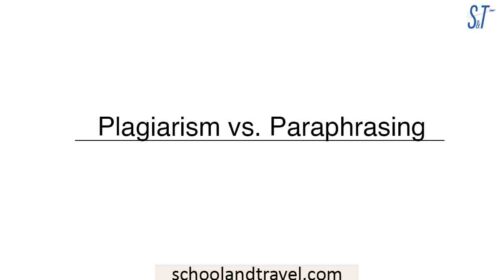-
#1
I’ve just had an essay activity in classroom today, — wasn’t really an essay-essay though, you know, more of a random text composition whatsoever — and it was something like really fast (about 8 minutes to do it). After time’s up, the teacher perused each student’s text. When she read my text, she made some remarks; one of them in particular was the use of ‘most definitely’. She says that ‘most definitely’ cannot be used both together like this way, so she asked me which to be removed (whether «most» or «definitely»). Here’s the bit:
«If I were to choose between having a congenital hearing or visual disability, being only either one or the other, I’d most definitely prefer to have the hearing capacities.«
So, what do you guys think? Any other mistake?
-
#2
I disagree with your teacher. To me ‘most definitely’ is a common phrase and is quite correct.
-
#3
Hi,
I’ve found many people often use definitely only.
But if you search «most definitely» on Google, there are more than 5 million results.
-
#4
Hi,
I’ve found many people often use definitely only.
But if you search «most definitely» on Google, there are more than 5 million results.
Exactly. ‘Most definitely’ is a common way of further emphasising your certainty about something.
-
#5
Perhaps it’s something essay examiners don’t like reading in formal writings?
-
#6
Perhaps your teacher is trying to make the point that the word «definitely» is not a word that should be qualified. Somethings is either definite or not. It cannot be more or less definite because definite is absolute by definition. If she is looking at it like that, then she has a valid point. Just because it is common doesn’t make it correct.
-
#7
I probably would not use the «most definitely» myself in this sentence, but it’s not terrible. «Most» is often used to emphasize «definitely.» Would you like to go to the movies? Most definitely. (Not a great example, but serviceable.
As for «other mistakes,» the sentence has more serious problems.
«If I were to choose between having a congenital hearing or visual disability, being only either one or the other, I’d most definitely prefer to have the hearing capacities.«
First, you don’t need the red phrase. You’ve already established that it’s a choice between one or the other, so the phrase is superfluous.
Second, you were suppose to choose which disability you would rather have, but you’ve told us which capacity you prefer, which confuses the issue. As I tend to shout during television interviews with politicians — Answer the question!
-
#8
Thanks for the replies. I get the point about «most definitely». Seems like my teacher is right this time around (she makes a great one).
Copyright said:
As for «other mistakes,» the sentence has more serious problems.
«If I were to choose between having a congenital hearing or visual disability, being only either one or the other, I’d most definitely prefer to have the hearing capacities.»
First, you don’t need the red phrase. You’ve already established that it’s a choice between one or the other, so the phrase is superfluous.
Second, you were suppose to choose which disability you would rather have, but you’ve told us which capacity you prefer, which confuses the issue. As I tend to shout during television interviews with politicians — Answer the question!
Yeah, I am usually always superfluous when it comes to writing. Perhaps it’s just a way to try to make it sound kind of more formal or classy, although it seems that most of the times they simply turn out to be saturated, or wrong in terms of sentence structure, or I don’t make sense at all, even.
But thank you ‘Copyright’ for pointing out the other mistakes and for being so comprehensive with your reasons. Correct me any time, anyone! I’d appreciate if people would do this with every post of mine on this forum.
-
#9
Thanks for the replies. I get the point about «most definitely». Seems like my teacher is right this time around (she makes a great one).
Yeah, I am usually always superfluous when it comes to writing. Perhaps it’s just a way to try to make it sound kind of more formal or classy, although it seems that most of the times they simply turn out to be saturated, or wrong in terms of sentence structure, or I don’t make sense at all, even.
But thank you ‘Copyright’ for pointing out the other mistakes and for being so comprehensive with your reasons. Correct me any time, anyone! I’d appreciate if people would do this with every post of mine on this forum.
Well since you asked so nicely:
Yeah, I am usually superfluous when it comes to writing. Perhaps it’s just a way of trying to make it sound more formal or classy. It seems like most of the time the sentences end up being overly long or wrong in terms of structure, or I don’t make sense at all.
But thank you ‘Copyright’ for pointing out the other mistakes and for being so comprehensive with your reasons. Correct me any time, anyone! I’d appreciate if people would do this with every post of mine on this forum.
-
#10
Well since you asked so nicely:
Yeah, I am usually superfluous when it comes to writing. Perhaps it’s just a way of trying to make it sound more formal or classy. It seems like most of the time the sentences end up being overly long or wrong in terms of structure, or I don’t make sense at all.
But thank you ‘Copyright’ for pointing out the other mistakes and for being so comprehensive with your reasons. Correct me any time, anyone! I’d appreciate if people would do this with every post of mine on this forum.
Hehe, yeah!
That’s what I’m talking about.
Cheers!
-
#11
Just because it is common doesn’t make it correct.
Just because someone somewhere sometime has concocted a rule out of thin air, despite the contrary evidence of millions of native speakers, does not make it correct either.
-
#12
What is the rule that was «concocted» out of «thin air»?
-
#13
That some words are ‘absolute’ ~ I forget the exact technical term, it came up just the other day ~ i.e. cannot be qualified in any way: fairly unique, wholly incomplete, etc.
-
#14
«Most definitely» is so commonly used these days in the US that to call it an error is grossly pedantic. Use it all you want, but evidently not with this teacher.
Cagey
post mod (English Only / Latin)
-
#15
That some words are ‘absolute’ ~ I forget the exact technical term, it came up just the other day ~ i.e. cannot be qualified in any way:
fairly unique,wholly incomplete, etc.
I think the technical term is — what is it now? — ah, yes «absolute». (And I agree with you.)
Here is a sensible discussion of the use of modifiers and comparatives with «absolute terms» from the American Heritage Guide to Contemporary English. It points out:
People object to these constructions because they seem to violate the categories of logic. Something is either complete or it isn’t. [….] There can be no in-between. The mistake here is to confuse pure logic or a mathematical ideal with the working approximations that distinguish the ordinary use of language.
Here is Fowler himself using a comparative with «definitely» (underline added).
TO use individual wrongly in the twentieth century stamps a writer,
more definitely
than almost any other single solecism, …. Fowler’s Kings English, 1908.
Whether or not to use «most definitely» in the original sentence seems to me to be a stylistic question, not a question of grammar.
-
#16
I think the technical term is — what is it now? — ah, yes «absolute».
You’re right, Mr.C ~ absolute adjective. Here‘s the thread I was thinking of.
-
#17
True though that may be gentlemen, too far east is west. It is one thing to say that the rule is over-applied in some instances, but I disagree with the idea that it has no merit at all. That is the impression that I got given that it was referred to as concocted out of thin air. Correct me if I have misinterpreted you.
It is true that some words, by definition, are absolute (such as the word «absolute» itself ). The fact that this remains topic of debate instead of one that has been settled aeons ago leads me to believe that grammarians on both sides of the divide have points worth taking into account.
-
#18
Most definitely it wastes time and ink and keeps us in front of our computers. It is most definitely wrong to use most definitely!
GF..
Time to go to bed…. and not get involved in this sort of thread….
-
#20
I’d undoubtedly prefer the hearing impairment.
-
#21
I’d undoubtedly prefer the hearing impairment.
As easy as it looks, hehe.
I’d love to disclose my reasons as for choosing the visual impairment instead as presented along in my «mini» essay. It is kind of a bit long and unnecessary reading though, so I’ll spare you this time around.
-
#22
Perhaps it’s something essay examiners don’t like reading in formal writings?
I think this is the reasoning. I consider the phrase ‘most definitely’ to be somewhat of a slang expression, something to be spoken among friends, but not used in formal settings, for all the reasons everyone’s thus far given.
-
#23
Hey. Perhaps it’s just a case of uncertainty.
I was just posting another message on a different thread here and I wrote «almost certainly», which somewhat made me remember about «most definitely» — because as my teacher said to me, it must be either most or definitely but never them both together.
-
#24
I don’t have any problem with «most definitely prefer», but I’m not sure what you mean by it. I think a «definite preference» would be a clear, distinct preference, and «most definite» would mean «clearest and most distinct», or «most clear and distinct», so «most definitely» has to mean «most clearly and distinctly». Is that what you mean?
-
#25
I don’t have any problem with «most definitely prefer», but I’m not sure what you mean by it. I think a «definite preference» would be a clear, distinct preference, and «most definite» would mean «clearest and most distinct», or «most clear and distinct», so «most definitely» has to mean «most clearly and distinctly». Is that what you mean?
Ohh, I think I messed up the two up there. Sorry.
Yeah, I think your post is clear: «most definitely» does not give the impression of uncertainty as «almost certainly» does. Rather, it might just be sort of repetitive or excessive or superfluous or whatever grammarians would name it — I don’t really know how to call this.
Last edited: Oct 26, 2008
-
#26
Hi, Prankstare.
Are you saying you thought most meant «almost» (= nearly)?
Sometimes it does, but only where it can’t be a superlative (e.g. «most all» = «almost all»).
«Most definitely» does not mean «almost definitely». It means so definitely that more definitely is impossible.
Does that make sense?
-
#27
Hi, Prankstare.
Are you saying you thought most meant «almost» (= nearly)?
Sometimes it does, but only where it can’t be a superlative (e.g. «most all» = «almost all»).
«Most definitely» does not mean «almost definitely». It means so definitely that more definitely is impossible.
Does that make sense?
Mmm, okay. Yeah that makes sense.
Like say «Most of all the grades were low«, meaning not entirely all the grades but most of them.
-
#28
No. «Most all the grades» means «almost all the grades», which I think is more than «most of (all) the grades». But that’s a topic for another thread.
-
#29
No. «Most all the grades» means «almost all the grades», which I think is more than «most of (all) the grades». But that’s a topic for another thread.
Hum,
OK.
The confusion between “Definately and Definitely” occurs because of the similarity in spelling and pronunciation.
“Definately” is the wrong word while “Definitely” is the correct word. Since the 16th century when these words were first adopted into usage, there have been discrepancies between dictionaries on which of them is correct.
This article will explain these two words and help you understand the difference between them.
Definately or Definitely
Meaning of Definately:
The Urban Dictionary regards “definately” as the ‘Idiot-speak for “definitely”. The mistake comes as a result of misplacing the “i” between the “n” and “t” with “a”. Sometimes it is an abrupt mistake due to the similarity in spelling and pronunciation.
Examples:
- I will definately end this course today. (incorrect)
- She must definately pay for that book whether she likes it or not. (incorrect)
- I must definately apply for that scholarship next year. (incorrect)
Read this: Freind vs. Friend – Which is Correct?
Definately or Definitely
Meaning of Definitely:
The root word of “Definitely” is “Definite”. The “ly” after the root word turns it into an adverb. However, definitely comes from the Latin word “definitus”, meaning Precise or definite.
“Definitely” means without resistance or question. The phonological transcription is |ˈdefɪnətlɪ|.
Examples:
- I will definitely find out about it.
- She must definitely explain the reason for that act.
- Definitely is often confused as “definately” because of the way it sounds.
Definately or Definitely
Antonymes and Synonymes:
The antonyms of definitely include:
- Indefinitely
- Perhaps
- Doubtfully
- Possibly
The synonyms of definitely include:
- Clearly
- Easily
- Alright
- Doubtless
Final tips:
Another word that is often confused as “definitely” is Defiantly. Unlike “definately”, this word exists in the English dictionary, meaning “a strong opposition against a force” but is often confused with the ideal word.
The best way to identify the correct word is to look at the root word “Definite”, then add the suffix “ly” to create the new word.
Awesome one; I hope this article answered your question.
Related articles:
-
Excel vs. Accel – Which is correct?4 min read
Both Excel and Accel are correct in different contexts despite their similar spelling and sound. While these verbs belong to the same category, they are very different. To avoid confusion, it’s vital to identify the two. […]
-
Habit vs. Hobby (Difference between Habit and Hobby)2 min read
Habit vs. Hobby: This can be confusing, but it’s not impossible to tell the difference between hobbies and habits because both refer to anything that is done on a daily basis. Frequent, enjoyable activity is what […]
-
exd vs. edX – What’s the difference?3 min read
exd and edX are often misplaced with each other because of the similarity in spelling. The only difference between the words is the differences in the placement of “d” and “X”. This article will explain these […]
-
Plagiarism vs. Paraphrasing: What’s the Difference?4 min read
Suppose you are new to the writing profession. You need to know the difference between plagiarism and paraphrasing in this case. Both of these terms are pretty confusing, and some of you might even think of […]
-
Pupil vs. Student – Which is Correct?4 min read
Being a pupil is almost synonymous with being called a student. However, a few differences tell how they can be used in English. The article below discusses that in-depth. Pupil vs. Student: Who is a Pupil? […]
Share this Information.
“Definitely” is the correct spelling of the word.
“Definately” is incorrect and should not be used in English.
The word “definitely” means “without doubt” or “certainly”.
I definitely want to go see the new Spiderman movie in the cinema.
Do you want to go for ice cream?
Definitely
Definatly,Definantly,Definetly,Definently,Definitley,Defiantly
All of the words above are misspellings of “definitely” and should not be used when you want to use “definitely”,
“Defiantly” has a different meaning and means to show pride in obeying an authority.
How to remember how to spell “Definitely”
I must admit that I also have difficulty remembering how to spell “Definitely” and I am not alone as it regularly comes up as one of the most difficult words in the English language.
The way that I remember it is that it is double “i” as in “definitely” because most people misspell the word as “Definately” because that is how it sounds when it is spoken.
- Author
- Recent Posts
Conor is the main writer here at One Minute English and was an English teacher for 10 years. He is interested in helping people with their English skills and learning about using A.I tools at work.
This word was formed from Latin definitus,
the past participle of the verb definire ‘to bind, limit’. It was
first adopted into English in the 16th century to mean ‘in a definite manner,
precisely’. It has always been spelled definitely, and our 16th
century ancestors would be surprised to learn that, according to a survey
reported in The Daily Record in June 2009, definitely is
‘definately the most misspelled word in the English language’. Despite
being in widespread use, the misspelling definately comes in for
considerable scorn. The Urban Dictionary has a separate entry for definately,
which it defines as: ‘Idiot-speak for “definitely”. One of the most
common moronic misspellings found on the Internet’. And just to make
absolutely clear the kind of people with whom the spelling is associated, the
following example is offered: ‘The new Backstreet Boys CD is, like, definately
the best thing ever’.
 |
| Spelling Trouble performing with the boys |
One anonymous pedant feels so strongly about the
correct spelling of this word that he has set up a website with the URL:
www.d-e-f-i-n-i-t-e-l-y.com which simply states: ‘The correct spelling is definitely.
Not definately. Not definatly. Not definantly. Not definetly.
Not definently. And certainly not defiantly. The correct spelling
is definitely.’ The website includes a Frequently Asked Questions
page which is similarly to the point. There is just one question: ‘Are
you sure?’, which receives the predictable response: ‘Definitely’. Unfortunately
for this lone orthographic crusader, he has an evil twin who has set up an
alternative website with the domain name: www.d-e-f-i-n-a-t-e-l-y.net, which
assures its readers that the correct spelling is definately. The
page offers a single sample sentence, which cleverly hints at the bogus nature
of the advice being offered: ‘You definately shouldn’t believe
everything you read on the Internet’. He might have added that, if you
really want to know how to spell the word, try checking a dictionary.
Despite these helpful websites, the misspelling is common on Twitter
too; my all-time favourite definately tweet comes in response to
the question ‘Does Spelling Still Matter?’: ‘Yes, definately’.
Use definitely to describe something you don’t have any doubt about. If you are certain you’re going to see your friend’s band play, you can assure him that you’ll definitely be there.
The adverb definitely is used to emphasize the certainty of whatever word it modifies. If you are sure you want apple pie, you could say you definitely want it. The base word definite can also mean «a certain limit,» like the definite size a shelf must have to be. You wouldn’t say «the carpenter definitely cuts the wood,» to describe the exactness of the work; use precisely instead. AND, yes, definitely definitely has an e before the ly!
Definitions of definitely
-
adverb
without question and beyond doubt
DISCLAIMER: These example sentences appear in various news sources and books to reflect the usage of the word ‘definitely’.
Views expressed in the examples do not represent the opinion of Vocabulary.com or its editors.
Send us feedback
Commonly confused words
definitely / definitively
Use definitely and definitively when there’s no doubt, but save definitely for emphasis and definitively for the final say. If you definitely want to go to a party, but your mom definitively says no, then you aren’t going. Quit asking.
Continue reading…
EDITOR’S CHOICE
Look up definitely for the last time
Close your vocabulary gaps with personalized learning that focuses on teaching the
words you need to know.
Sign up now (it’s free!)
Whether you’re a teacher or a learner, Vocabulary.com can put you or your class on the path to systematic vocabulary improvement.
Get started







